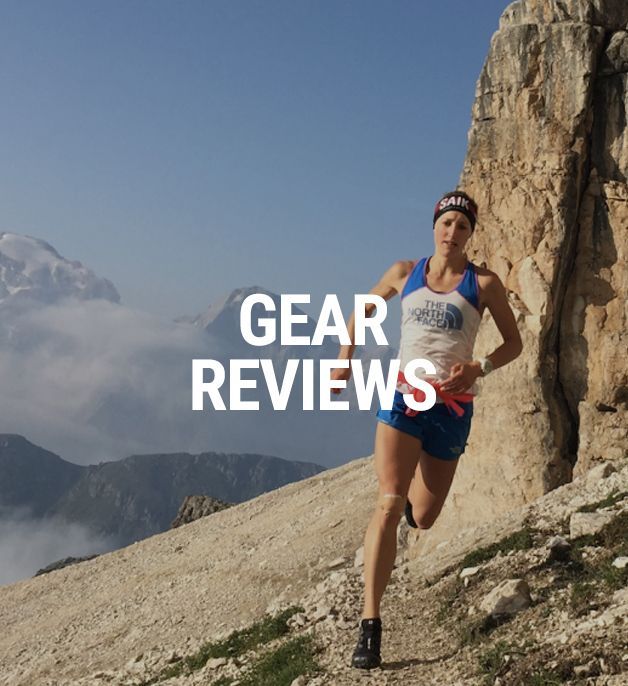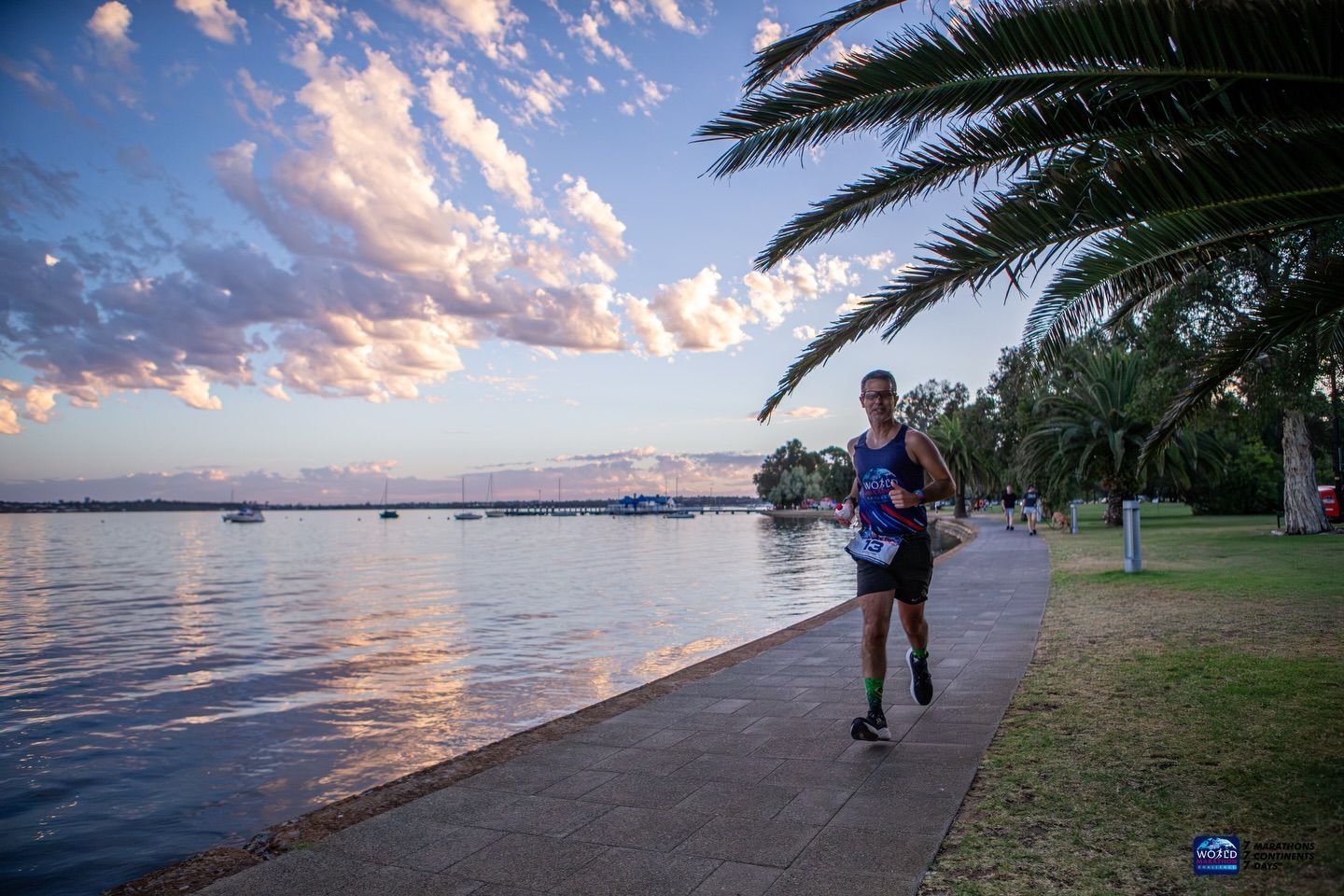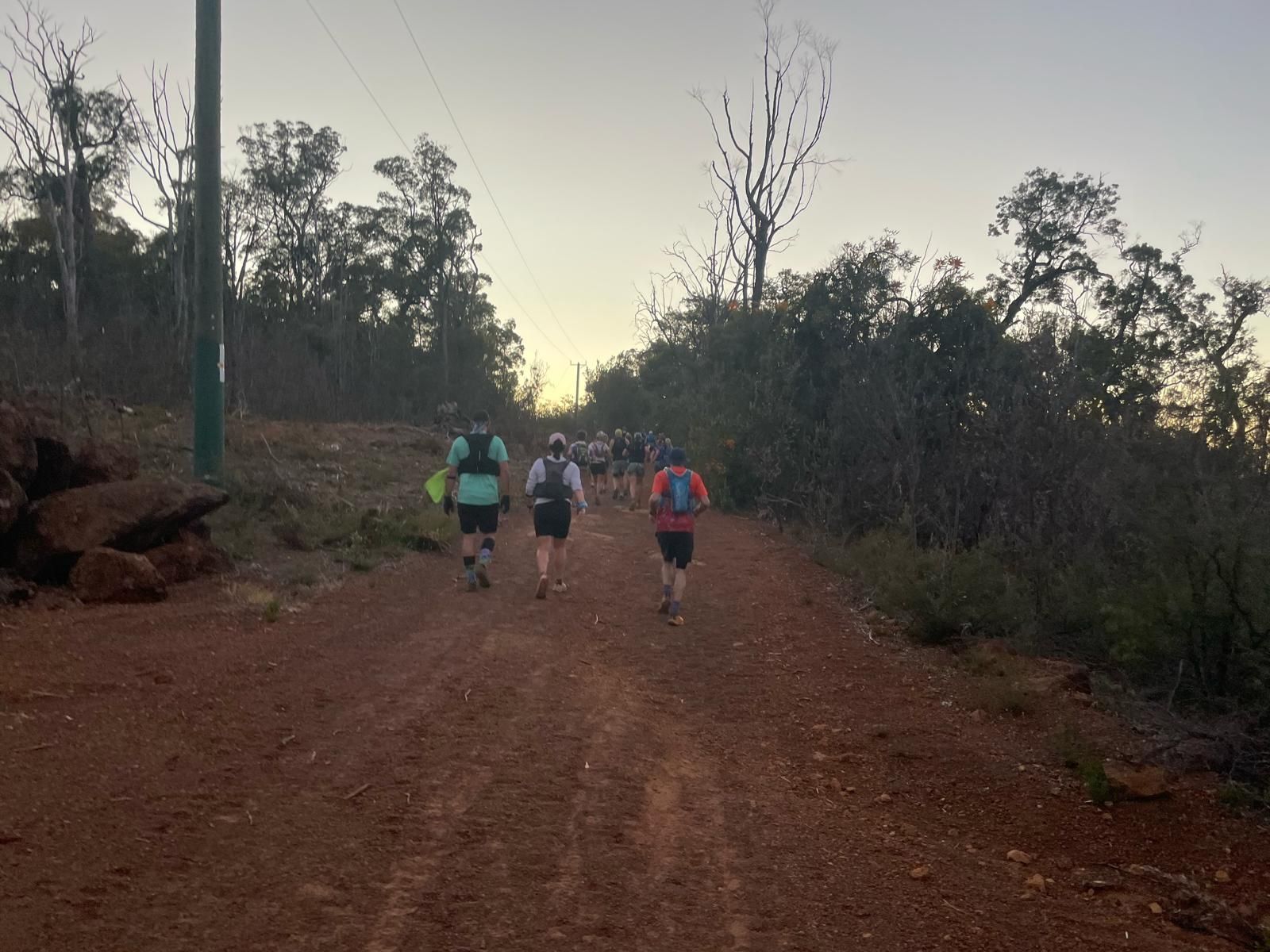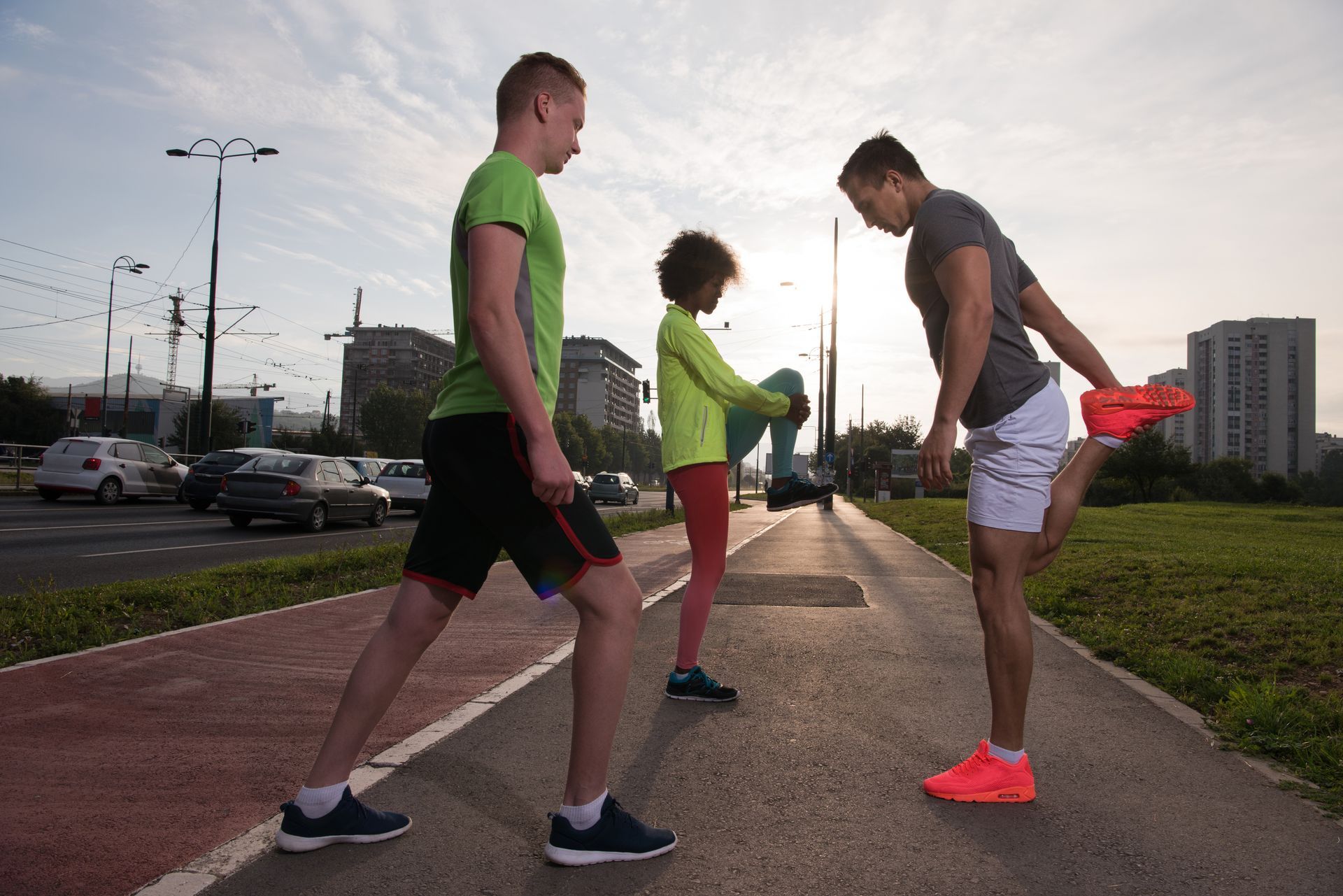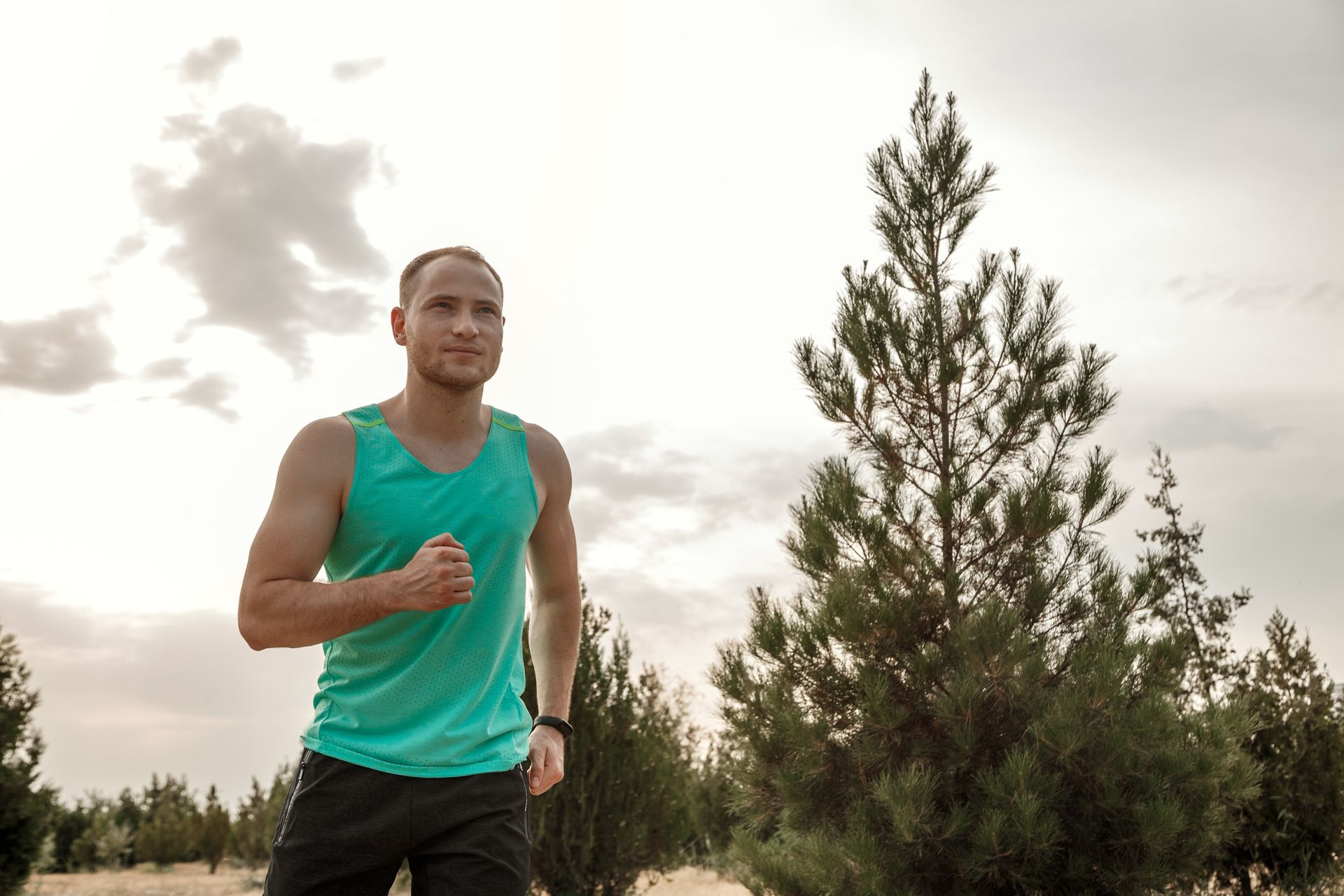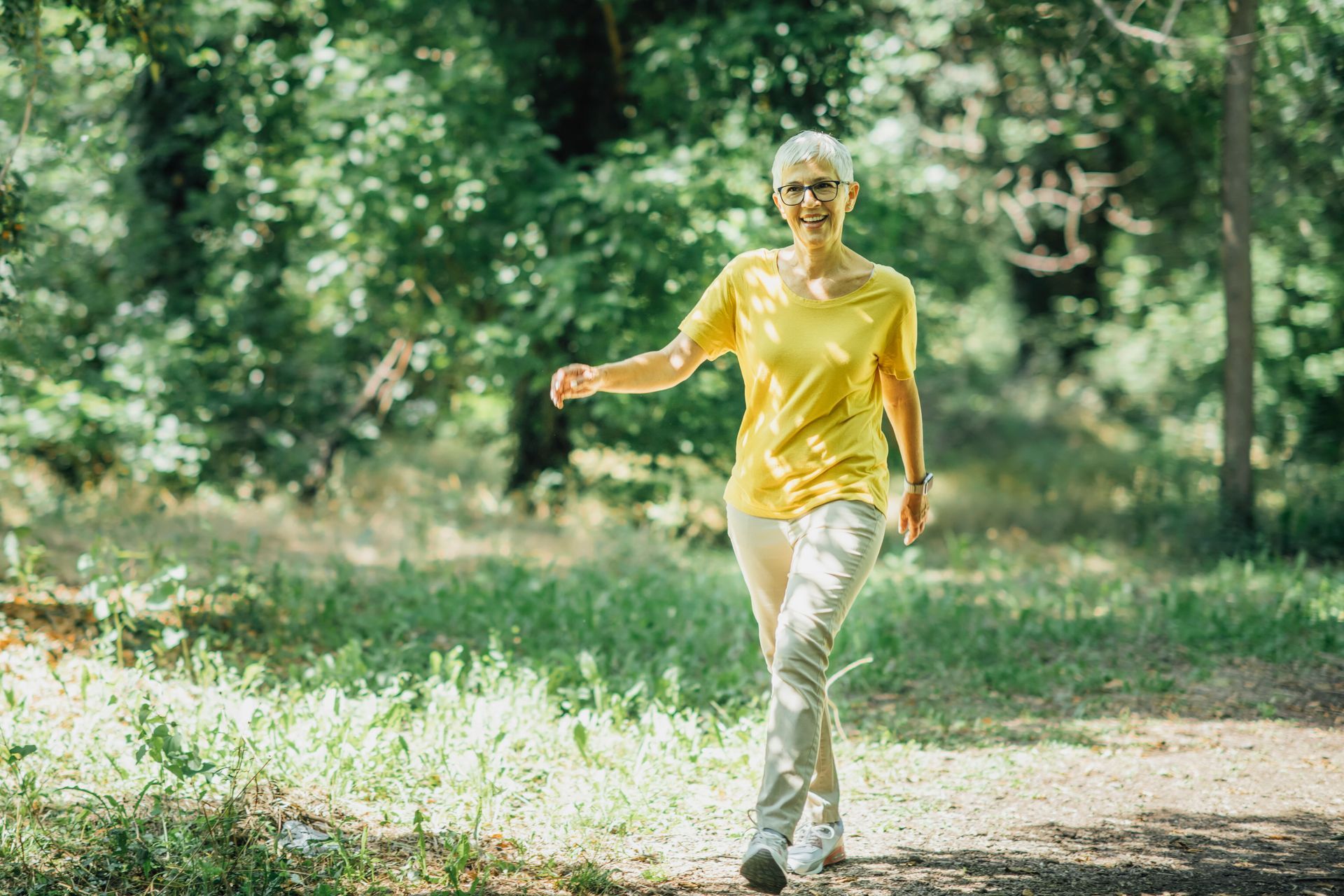
COACH'S CORNER - Get Ready for Menopause by Cathy Duffy
Get ready for menopause with Cathy Duffy from mile 27

Menopause hit me like a sledgehammer. I hadn’t given it a thought until I found myself sleep-deprived, encapsulated in rhythmic volcano-like heat, with holes in my memory. I didn’t know a thing about this stage of life and with desperation sought answers. I am now determined to fly the menopause flag until it becomes a common discussion and consideration for females, regardless of their age or athletic prowess. I don’t want females surprised like I was. Have a read and then fly the flag with me!
Menopause is something you need to plan for and lay a strong foundation, so when you come of (menopause) age your mind and body are ready for what can otherwise be a very challenging time. Menopause is much more than hot flushes, night sweats and loss of periods. This is what I want everyone to know.
Terminology
Menopause is one day on the calendar which marks 12 menstruation-free months (average age 51years). Leading up to menopause is perimenopause; during this time hormone levels start to change, and symptoms start. Perimenopause can last 10years. After menopause is post-menopause. This is the new biological state for the female.
Hormones are key
There are multiple hormones in the female body. All have value, however of note:
- Estrogen is a dominant female hormone.
- We have estrogen receptors in almost every body system; therefore, the presence or absence of estrogen impacts the whole body.
- Progesterone is another hormone. It works with estrogen to provide balance in the body. For example, estrogen promotes inflammation, progesterone is anti-inflammatory thus creating balance.
- During perimenopause the levels of these hormones (and the ratios between them) change resulting in symptoms. In the inflammation example, if estrogen becomes more dominant, your body will have more inflammation.
- There are multiple ways hormones can fluctuate; this is why symptoms and experiences may vary.
Symptoms can have a significant impact, with many needing to engage with a doctor to discuss the multiple treatment options. Note, it can be surprisingly difficult to find a menopause-aware doctor, so start your search early and don’t leave it until you are in the thick of it. As ultra-endurance athletes (and for all females) it is important to consider the following:
Bones
Our bones are a living tissue which constantly remodel (build bone) and reabsorb (break down bone). Our hormones drive how much remodelling and reabsorption occurs. In our younger years more remodelling occurs, making it imperative to lay a strong foundation through good nutrition and participation in a variety of sports (to allow for multi-directional loading of bones). During perimenopause more bone reabsorption occurs – so if you have not laid a strong foundation your bones can become weak increasing the risk of stress fractures or acute fractures from low impact falls. Don’t despair if this is you, it is never too late to strengthen your bones!
So, what can help bones? Running is a unidirectional repetitive sport. Whilst there are significant benefits to being running fit, our bodies do act as good shock absorbers. To strengthen bones, we need multi-directional stimulus (e.g. plyometric, HIIT) and/or lifting heavy (compound movements) with professional guidance. Our bones therefore require additional stimulus to become stronger.
Muscles
We have estrogen receptors in our muscles (of course we do), which means the presence of estrogen facilitates muscle growth. As estrogen levels decline the strength of our muscle contractions, and the number of muscle fibres reduces. The ability to maintain lean muscle mass is compromised thus increasing injury risk. We now need additional external stimulus PLUS protein consumption (to increase the anabolic window to build lean muscle tissue) around training. Thankfully the type of stimulus is the same as for our bones – plyometric, high intensity interval training (HIIT) and heavy lifting sessions. Don’t forget protein dosing around training.
Brain
Significant personal and physiological impacts can be experienced due to the requirement of estrogen within the brain. Common experiences include brain fog, depression, anxiety, fatigue, memory loss, reduced pain tolerance, changes to temperature control and appetite, and sleep deprivation. It is because of hormonal changes in the brain that life can become overwhelming both personally and professionally and can make getting out the door to train very difficult. Prioritising sleep (sometimes over training) and reviewing your sleep routine is important. Consideration of temperature control changes, excessive fluid loss from night sweats, ensuring quality nutrition and speaking with your menopause-aware doctor become priorities.
Body composition
The body experiences a lot of composition changes during perimenopause. As the ability to remove lipids (fat) changes many despair at the visceral or “belly fat” they now see. This can be very confronting for a female who has been embedded within societal expectations of what their body should look like. Syliva Pfeffer (Accredited Sport Dietitian) said to me “it is vital to disentangle performance goals from body image goals”. This is an extremely powerful statement. As ultra runners our bodies need to be appropriately fuelled if we want longevity in our sport. How we function far exceeds how we look in my opinion.
Concerns with body image, and/or appetite changes can lead to poor or inappropriate nutrition choices, low energy availability (LEA) or relative energy deficiency in sport (RED-S). LEA and RED-S can significantly exacerbate menopause symptoms and impact training. It is important to consult health professionals, for example your doctor (to discuss metabolic changes such as insulin resistance) or a sports dietitian to discuss macronutrient requirements and protein dosing.
Final take-aways
Menopause impacts everyone and can have profound effects. Make sure you:
- Include strength/plyometric/HIIT training into your week.
- Protein dose around training and ensure good quality nutrition to support training.
- Give yourself permission to prioritise sleep to allow for recovery.
- Know you are not alone and find a good doctor.
- Fly the menopause flag.
This is just the tip of the iceberg. For more information surrounding these topics I encourage you to listen to the Mile 27 podcast found on: https://mile27.podbean.com/e/empowering-women-navigating-menopause-as-an-ultra-runner/


